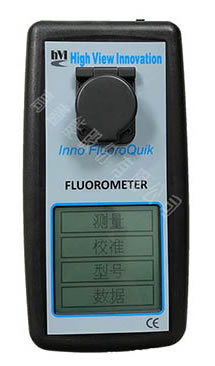Alkaline Phosphatase (ALP) Test for Pasteurized Milk
The alkaline phosphatase (ALP) is an enzyme normally present in raw milk and it is inactivated in conditions of heat treatment. The temperature of inactivation of ALP is slightly higher than that required for the destruction of pathogenic bacteria. So the ALP test in pasteurized milk is used to verify if the heating process of pasteurization is done correctly. Recently, The U.S. and EU public health limit for alkaline phosphatase in pasteurized milk is below 350 mU/liter by using fluorescent detection method. So far, this method is the most effective and reliable method. The assay uses specific enzyme-coupled reactions to produce fluorescent product. The fluorescence intensity at ex/em = 360/460nm is directly proportional to ALP concentration in the sample. The handheld fluorometer has internal temperature control, which controls the reaction at a constant temperature, allowing the system to provide reliable and rapid results within 20 minutes.
➥ Assay Performance:
● Sensitive & accurate, using 10μL /sampling.
● Linear detection range > 0 - 1,000 mU/L。
● Sensitivity: 20 mU/L, reaction time: 20 minutes.
➥ Content of the Field Kit:
● handheld fluorometer,360ex / 460em。
●
ALP Assay Kit (50 tests)
➥ Content of the Assay Kit (50 tests):
● Reagent:4.6 mL
● 100x Standard:30 μL
● Mini Glass Tube:50 pcs
● 0.5mL Plastic Vial:5 pcs
➥ Other Materials Suggested:
● Transfer pipette, 10-uL & 100-uL Pipette Tip
● Timer
● Small incubator maintained at 38 ° C (for multiple sample measurements)
➥ Product Information:
Shipping and storage: the kit is shipped at room temperature.
Store Reagents and Standards at -20°C. Shelf life: 12 months.
The handheld fluorometer is powered by the supplied 6V power adapter. No batteries available.
➣➣ See the detailed information: Alkaline Phosphatase (ALP) Test for Pasteurized Milk

